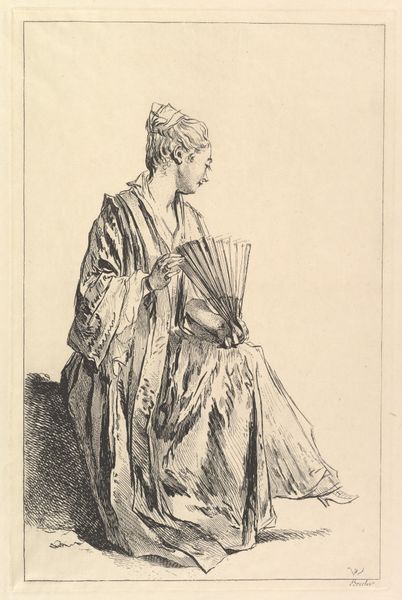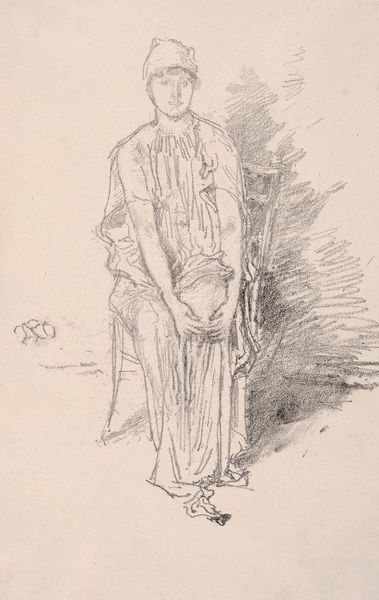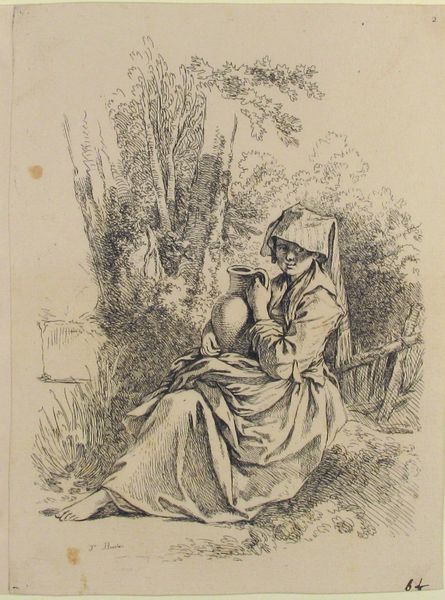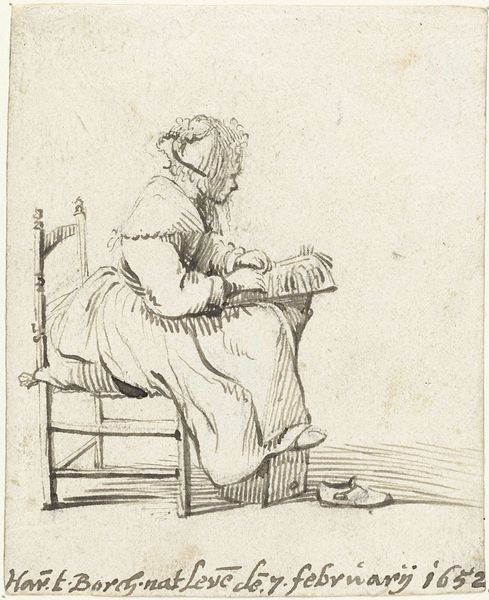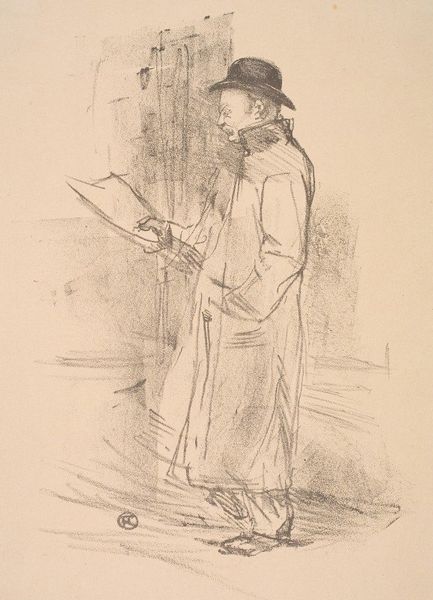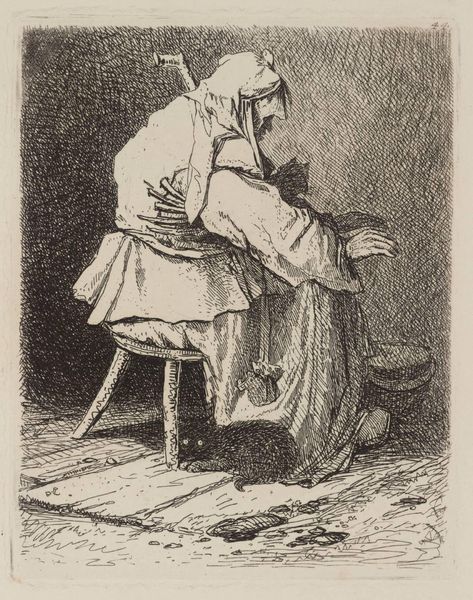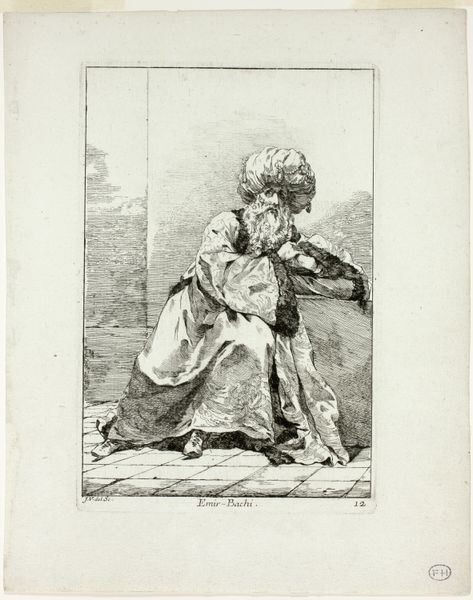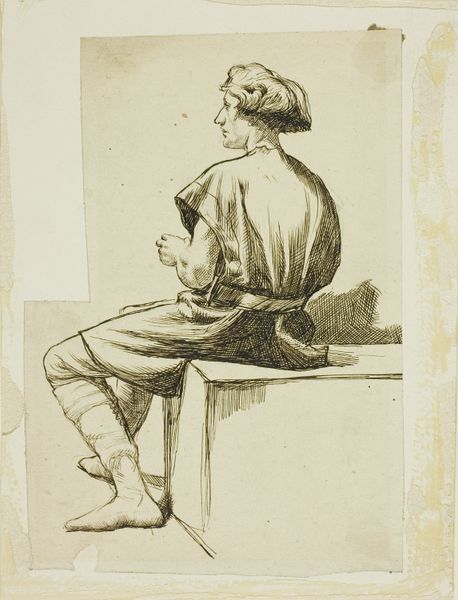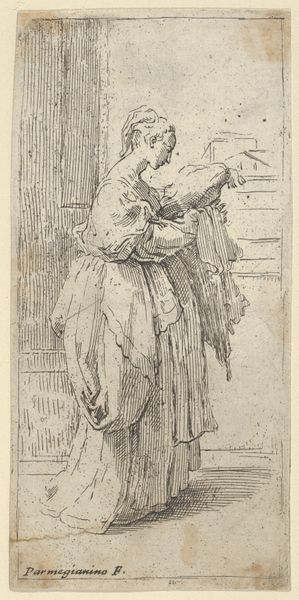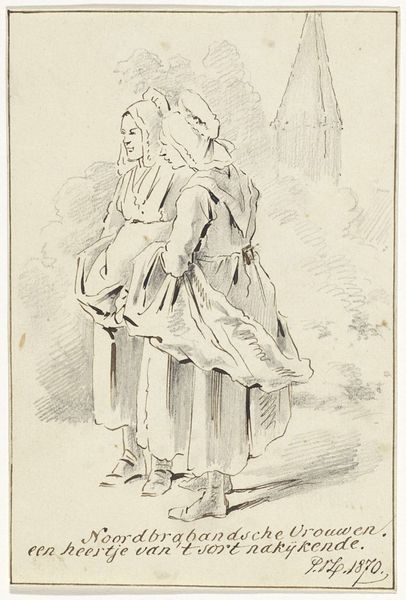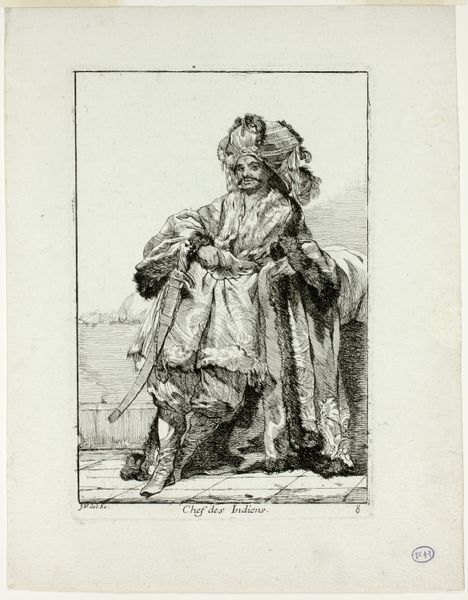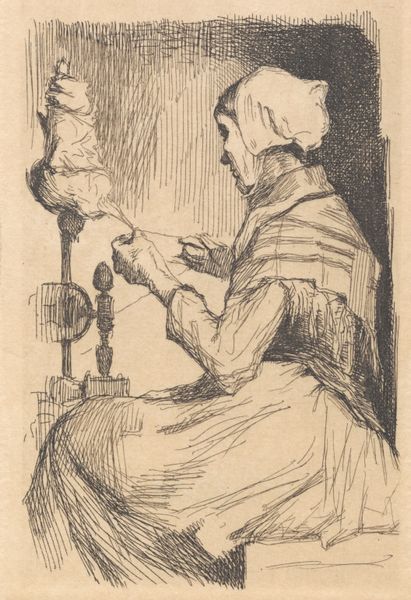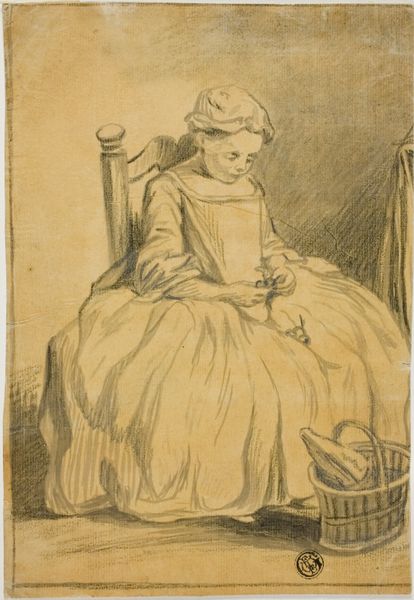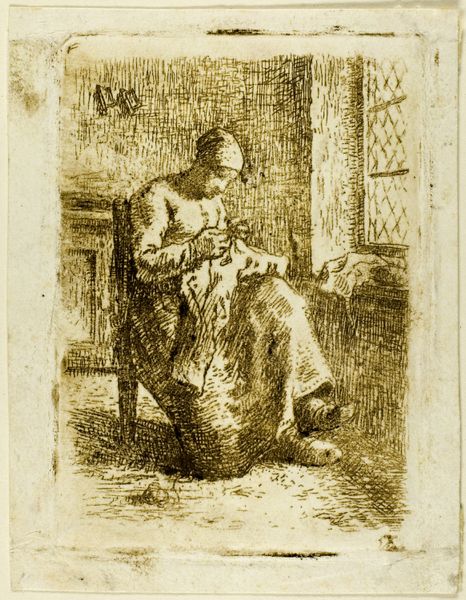
Strikkende dame (Lundbyes mor?) ved vindue med udsigt over grantræer, samt profilstudie 1839
0:00
0:00
drawing, paper, ink
#
portrait
#
landscape illustration sketch
#
drawing
#
mechanical pen drawing
#
pen illustration
#
pen sketch
#
landscape
#
paper
#
personal sketchbook
#
ink
#
ink drawing experimentation
#
romanticism
#
pen-ink sketch
#
botanical drawing
#
pen work
#
sketchbook drawing
#
genre-painting
Dimensions: 151 mm (height) x 92 mm (width) (bladmaal)
Editor: We're looking at Johan Thomas Lundbye's "Strikkende dame (Lundbyes mor?) ved vindue med udsigt over grantr\u00e6er, samt profilstudie," a pen and ink drawing from 1839. I’m struck by the domestic intimacy; it feels very personal, like a glimpse into the artist's private world. How do you interpret the layering of imagery here, especially with the face in profile alongside the landscape? Curator: That juxtaposition is precisely what captures the essence of memory and presence. The face, likely a self-portrait as it looms close to the artist's subject, evokes a psychological interior, while the landscape represents the external world. What’s powerful is the emotional weight each carries, simultaneously. The window isn't just a window; it's a frame for reverie. Editor: So, the pine trees aren't simply background detail? Curator: Not at all! Pine trees, especially in Romanticism, often symbolized steadfastness, longing, and even a connection to the divine. In this context, consider them a reflection of the woman's inner world as she quietly knits. Her act becomes almost meditative, linking her to the enduring qualities of nature. Editor: It's fascinating how a seemingly simple sketch can contain such layered meaning. I'm beginning to see how Lundbye used these visual symbols to explore deeper connections between people and their environment. Curator: Exactly! And remember, knitting itself can symbolize fate, the weaving of life’s threads. Lundbye isn’t just depicting his mother, he is also exploring broader existential themes, playing with ideas of destiny and nature. This interplay, recorded using simple implements, is how cultural memory gets shaped by visual art. Editor: I’ll definitely think about that next time I see a landscape! Thank you for sharing your perspective! Curator: My pleasure. I'm glad to have helped to clarify the artwork's imagery.
Comments
No comments
Be the first to comment and join the conversation on the ultimate creative platform.
